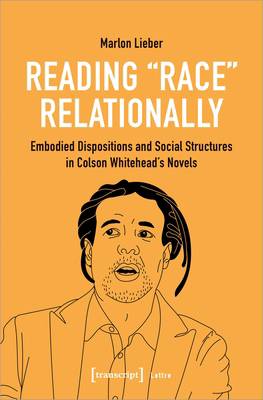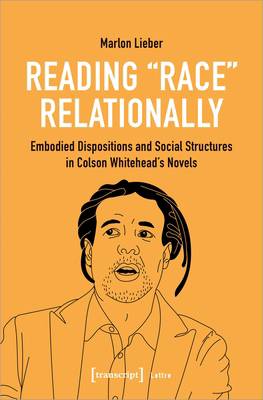
Bedankt voor het vertrouwen het afgelopen jaar! Om jou te bedanken bieden we GRATIS verzending (in België) aan op alles gedurende de hele maand januari.
- Afhalen na 1 uur in een winkel met voorraad
- In januari gratis thuislevering in België
- Ruim aanbod met 7 miljoen producten
Bedankt voor het vertrouwen het afgelopen jaar! Om jou te bedanken bieden we GRATIS verzending (in België) aan op alles gedurende de hele maand januari.
- Afhalen na 1 uur in een winkel met voorraad
- In januari gratis thuislevering in België
- Ruim aanbod met 7 miljoen producten
Zoeken
Reading Race Relationally
Embodied Dispositions and Social Structures in Colson Whitehead's Novels
Marlon Lieber
€ 93,45
+ 186 punten
Omschrijving
What does it mean to write African American literature after the end of legalized segregation? In this study of Colson Whitehead's first six novels, Marlon Lieber argues that this question has permeated the Pulitzer Prize-winning author's writing since his 1999 debut The Intuitionist. Drawing on Pierre Bourdieu's relational sociology and Marxist critical theory, Lieber shows that Whitehead's oeuvre articulates the tension between the persistent presence of racism and transformations in the United States' class structure, which reveals new modes of abjection. At the same time, Whitehead imagines forms of writing that strive to transcend the histories of domination objectified in social structures and embodied in the form of habitus.
Specificaties
Betrokkenen
- Auteur(s):
- Uitgeverij:
Inhoud
- Aantal bladzijden:
- 270
- Taal:
- Engels
- Reeks:
Eigenschappen
- Productcode (EAN):
- 9783837663464
- Verschijningsdatum:
- 30/05/2023
- Uitvoering:
- Paperback
- Formaat:
- Trade paperback (VS)
- Afmetingen:
- 152 mm x 229 mm
- Gewicht:
- 403 g

Alleen bij Standaard Boekhandel
+ 186 punten op je klantenkaart van Standaard Boekhandel
Beoordelingen
We publiceren alleen reviews die voldoen aan de voorwaarden voor reviews. Bekijk onze voorwaarden voor reviews.









